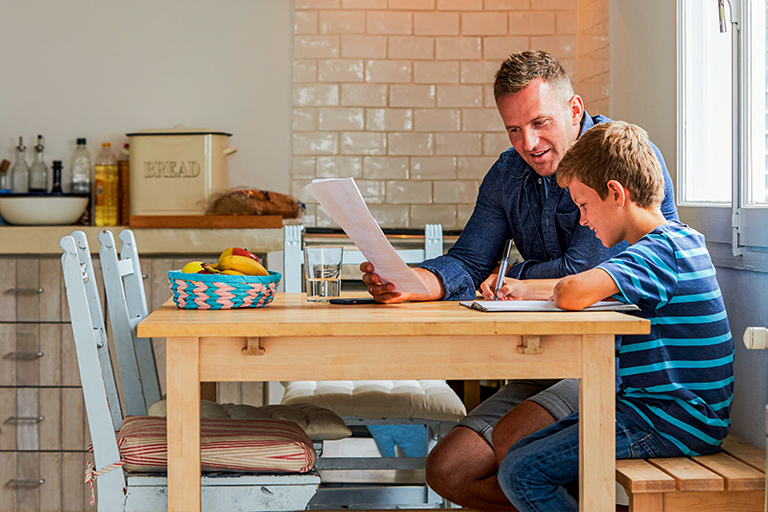In April and May 2020, we asked 608 Australian primary school parents a series of questions about home learning — how much time they devote to daily support, the types of work their child has received and how homeschooling has affected them. According to this research, almost 60 per cent of primary school parents agree that their work and/or career has been impacted due to their child learning at home. Private school parents are significantly more likely to believe their career has suffered.
When it comes to quality of life, 29 per cent of primary school parents admit at-home learning has negatively impacted them, while 21 per cent have experienced a positive impact.
Parents are better understanding how their children learn
Perhaps one of the perceived benefits of home learning has been the fact that 65 per cent of parents admitted that homeschooling has given them a better understanding of how their child learns.
“We often hear from parents that they turn to tutors or seek out extra educational support when they’ve been blindsided by their child’s report card, exam results or received unexpected teacher feedback,” says Cluey Chief Learning Officer, Dr Selina Samuels. “While this period has presented many challenges, it’s given parents a much deeper insight into what their child is learning at school and their learning gaps. And while schooling has been disrupted this year, parents now have a lot of observations to draw on to support their child’s learning moving forward.”
Almost one third of parents believe their child’s learning has suffered during this period, while 47 per cent feel a lack of peer-to-peer learning has been the biggest educational challenge for their child.
Remote learning experiences have varied across Australia
Our research also revealed the very different types of learning, engagement with educators and modes of delivery that families across the country have experienced. Key findings include:
- Metropolitan students are significantly more likely to receive live online classroom sessions compared to regional/rural students.
- Public school students are significantly more likely to receive worksheets as their main learning method (vs. pre-recorded or live classes) compared to students in private schools.
- Private school parents are significantly more likely to have been offered time with their child’s teacher to discuss their learning progress compared to students in public and Catholic schools.
On a positive note, 48 per cent of respondents believe their child likes or even loves online learning, which is a huge source of validation for our personalised, online model at Cluey.
You can check out our first wave of primary research results here. For further research insights and guidance on maintaining continuity of learning we encourage you to watch our blog.
